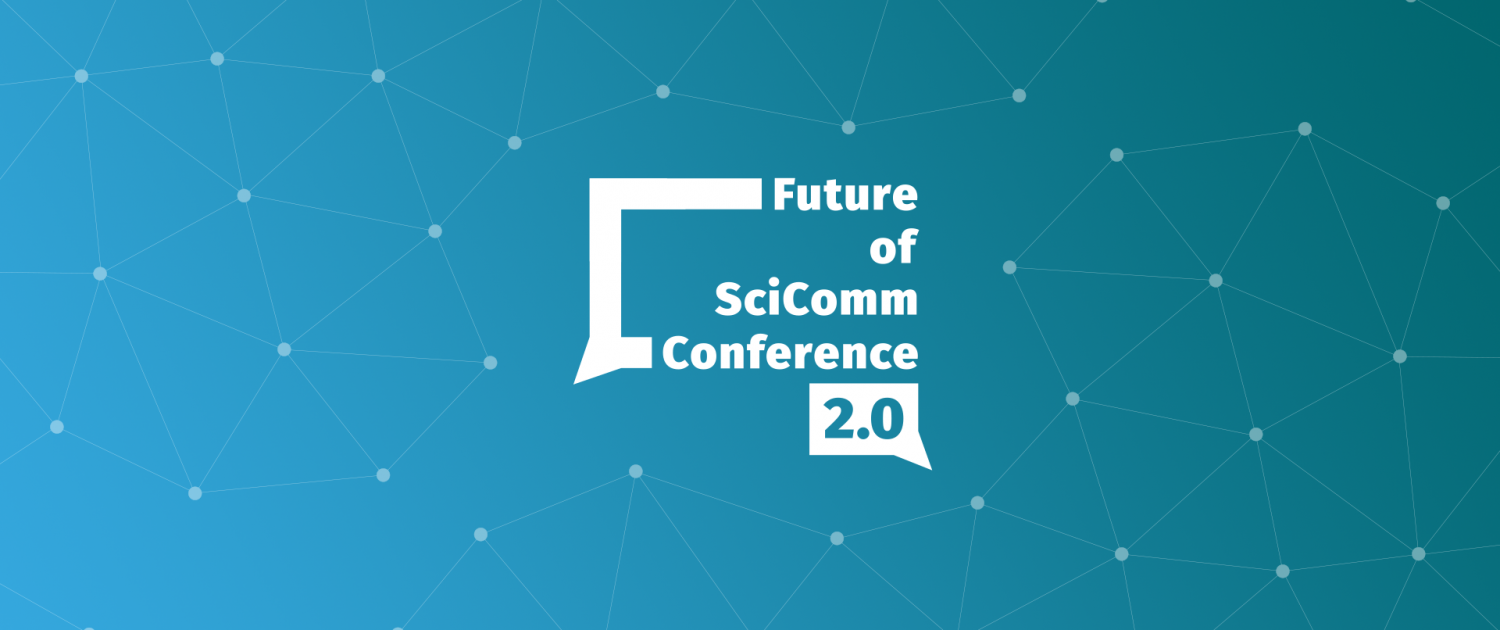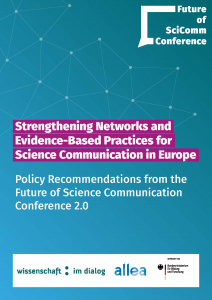FSCC 2.0: Portal and Policy
Recommendations Launched
The policy paper titled “Strengthening Networks and Evidence-Based Practices for Science Communication in Europe” has now been launched on the interactive portal documenting the Future of Science Communication Conference.
On 9 November 2022, the report detailing the policy recommendations from the Future of Science Communication Conference 2.0 (FSCC 2.0), held on 26 April in Brussels, was launched via a panel discussion on Twitter Spaces. The panel, which included Michael Wingens (Wissenschaft im Dialog), Daniel Kaiser (ALLEA), T.Y. Branch (University of Cologne) and Philipp Schrögel (University of Heidelberg), highlighted key learnings from the paper, entitled, “Strengthening Networks and Evidence-Based Practices for Science Communication in Europe,” and their main takeaways from the event.
“We see the policy recommendations, which came out of FSCC 2.0 and the first conference held virtually in June last year, as just the starting point for a more in-depth conversation on the future of science communication, the building of regional scicomm networks, and the bottom-up transfer of knowledge,” said Michael Wingens, the project leader of the conference. Daniel Kaiser reiterated this commitment to keep the conversation on scicomm going, adding that “there is a rich community of science communicators out there, and we need to bring them together in a structured and strategic manner to create a way to reach policymakers and make an impact.”
“There is a rich community of science communicators out there, and we need to bring them together in a structured and strategic manner to create a way to reach policymakers and make an impact.”
The policy recommendations can now be found on the interactive portal documenting both the first virtual conference, held in June 2021, and FSCC 2.0. The portal includes keynote speeches, panel discussions, and short summaries and video snapshots of the four interactive workshops.
The portal is organised thematically around important areas of concern in the field of science communication, such as mis/disinformation, science communication during a crisis, and promoting evidence-based practice in scicomm, and documents some of the insights shared by the scientists, policymakers, and practitioners that attended the in-person event.
You can access the portal here. Other useful resources:




